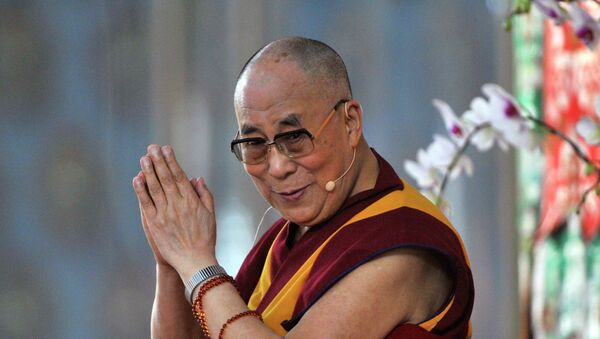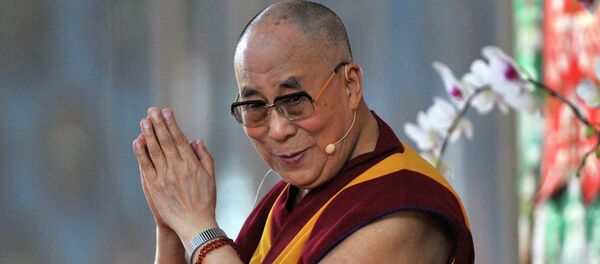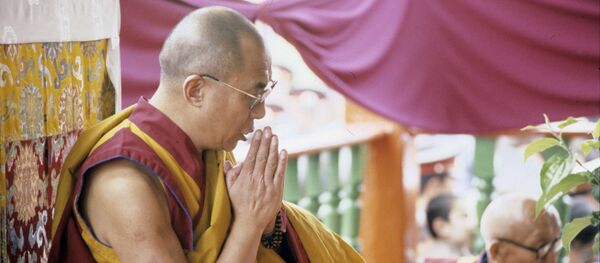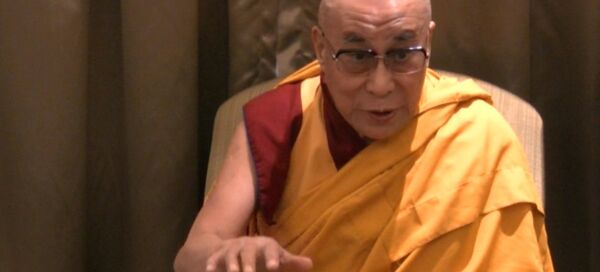You write a lot about Catholics and much less about Orthodox people, though in eastern Christianity there are deep mystic practices that resemble meditation. Why is it so and what do you think about the future relationship with Orthodoxy?
In your books you wrote about moral principles in theistic religions, moral principles that were transmitted to people from the Creator, from the Absolute God. Where do these moral principles come from in Buddhism, if there is no Creator and no Absolute God? And what moral principles do you consider to be the most important for people today?
Dalai Lama: Love; in order to develop love, not only to your own friend, is vital. The ordinary way of understanding what love is to view one’s relationship with a friend. Whilst biased, that is more or less mixed with attachment. According to the theistic vision, God gives us a genuine love that is an infinite love, an unbiased love. So much so that love can be extended towards one’s enemy. An enemy is also a creature of God. One of my Muslim friends said that a genuine practitioner of Islam must extend love towards all creatures of Allah. That is the unbiased love. All major religious traditions carry the same message, the same sort of practice.
I think this is the basis. Whilst all major religions can live together and can work together on that level, there are significant differences on other levels. Some say there is a Creator, some say there is no Creator. Within Christianity there is the Trinity – Son, Father and the Holy Spirit. For Muslims there is only Allah. In Buddhism there is no Creator. So big differences!
Your Holiness, today the geopolitical and psychological situation in the world is extremely difficult. It concerns the ME and even Russia. Many people think in categories of “we” and “they”. And many people are afraid of a third world war. What can we tell people, to help them to start hearing each other again? And how can the mind be calmed in this situation – in a situation of informational war and armed conflicts?
And the people who are afraid of a third world war – are they right in their fears? Perhaps wars and the suffering of millions are in someway our planets way of purifying humanity?
Dalai Lama: Recently I was in Italy, Rome, where Nobel laureates discussed world problems, including the dangers of a nuclear holocaust. They explained the potential of destroying the world using a nuclear warhead. Nowadays, most of them are much stronger than the two atomic bombs used during the WWII. Today these nuclear weapons are a hundred times stronger. So, if one part of those nuclear weapons is used, the whole world will suffer a lot not only at the moment when people are killed or burnt, but later on, because of the Ice Age after a nuclear bomb’s use. When these experts made a presentation, everybody was really terrified.
So, I don’t think there is a real danger of the nuclear war. I do not think anybody would dare use these weapons. Before WWII many scientists and politicians invested a lot of energy and money into the creation and production of such weapons. Subsequently, gradually, there were more talks and more concerns about how to reduce armaments. And now there are already talks that aim to free the world from nuclear weapons, to denuclearize it. You see, these talks are now growing. Therefore, unless one or two mad individuals have an opportunity, I don’t think WWIII is possible.
The economic situation in Russia today is very difficult because of the extreme fall of the ruble. And many people are stressed and fear the future. Where can people find some conciliation? What do we do in such a situation?
You celebrate the 80th anniversary next year. Have some of your views and ideas changed throughout your life, maybe the way you see the meaning of life or some other ideas?
Dalai Lama: At the age of 16 the political responsibility of Tibet was laid on my shoulders. That is one of the facts that changed my view of life. I then visited China in 1954 and 1955, and I met with Chairman Mao Zedong several times. We developed very cordial relations, almost like of a father and a son. That had also greatly impacted my life. Then, in 1956 I came to India – the first time I enjoyed India’s freedom and democratic system – a very big impact, to my mind.
Then, in 1959 I became a refugee. Now it is nearly 56 years. During that period I had the opportunity to meet with a lot of different people – people from different religious traditions and scientists, and different politicians, leaders, economists, educationalists and also beggars – a variety of people. I particularly met with scientists and special practitioners. From those meetings I learnt all the major traditions of the world. In spite of having different philosophical views, they all carry the same message – the message of love. So, I wrote it in that book.
And then, as the result of meeting with scientists, I thought that Buddhism in general, and particularly our later tradition is very scientific in its way of thinking – to investigate everything, experiment. So, it is a scientific approach. And in other traditions we have a very similar approach. You should remain skeptical, don’t easily accept, no matter how nicely they explain, still, remain skeptical and further investigate and investigate, and experiment. So, I'm a little scientist, a genuine scientist. Sometimes some scientists are themselves a little bit biased. That is not a genuine scientist. And, frankly speaking, in 1979 during my first visit to the Soviet Union, I met some scientists. The Soviet Union’s scientists were a little bit biased.




